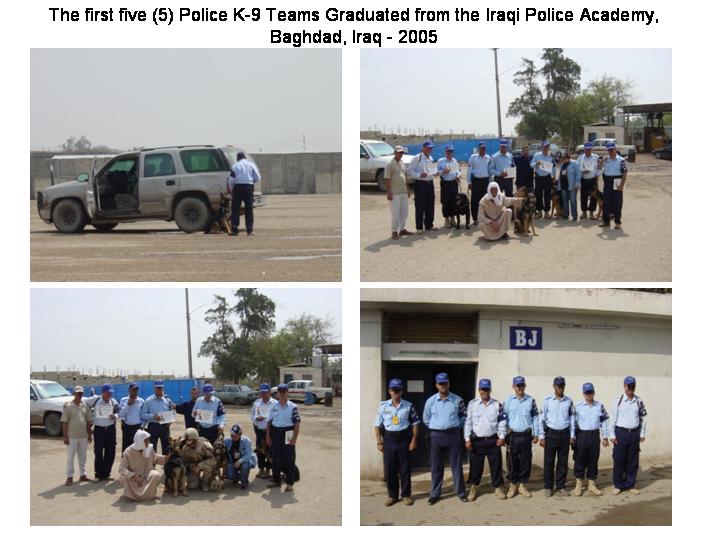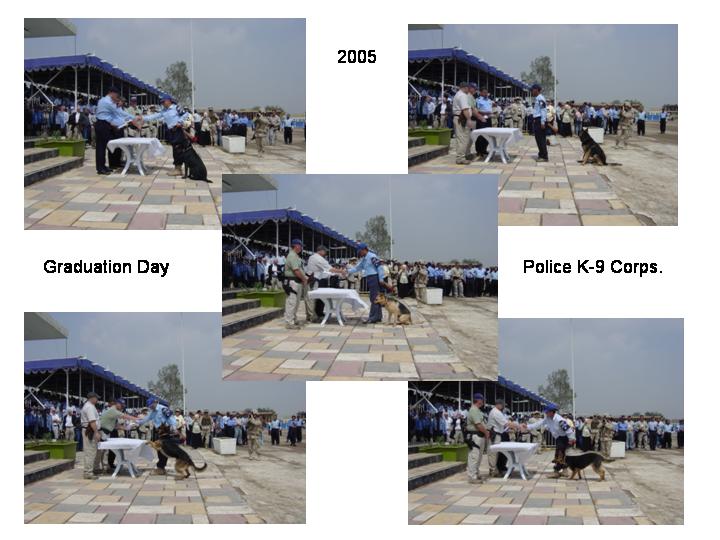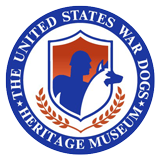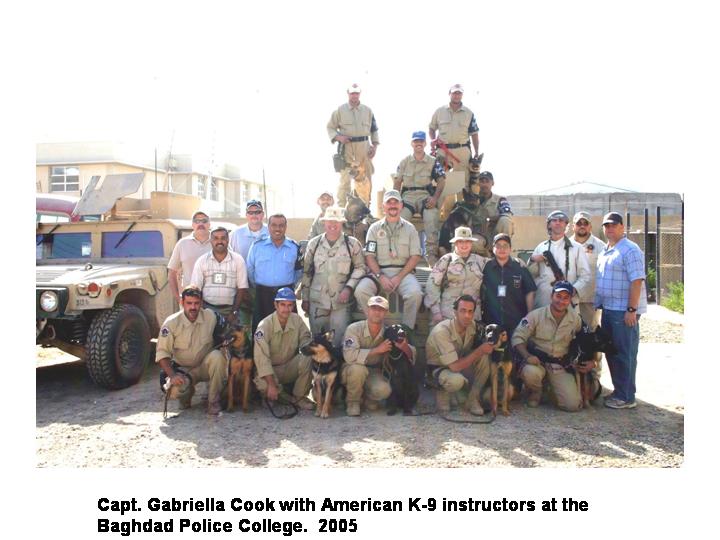
Dogs take a lead in Iraq’s terror war
By Aamer Madhani – USA Today
Posted : Tuesday Mar 23, 2010 8:28:31 EDT
BAGHDAD — Iraqis aren’t what you would call dog people.
The streets of the capital are filled with mangy canines, and dog owners are few.
But in a country where bombs and explosives are an everyday threat, Iraqis may start learning to love man’s best friend.
The Iraqi police force hopes to introduce 1,000 bomb-sniffing dogs and their handlers on the streets of Iraq within five years. That’s not a lot of dogs for a country of 29 million people, but in Iraq it is.
“Iraqis are not fully comfortable with dogs yet,” says Brig. Gen. Mohammad Mesheb Hajea, who is in charge of the Interior Ministry’s fledgling K-9 unit. “But the people are coming to love them because they realize what they can do to keep us safe.”
Twenty-five dogs and their human handlers graduated on Saturday from Baghdad Police College’s newly created K-9 course. And 120 more bomb-sniffing German shepherds, Malinois and Labradors are scheduled to be incorporated into Iraq’s police force by the end of this year.
As in many Muslim countries, Iraqis generally see dogs as unclean animals. Some of the religiously devout point to the teachings of the prophet Mohammed that prohibited believers from keeping the animals in their homes.
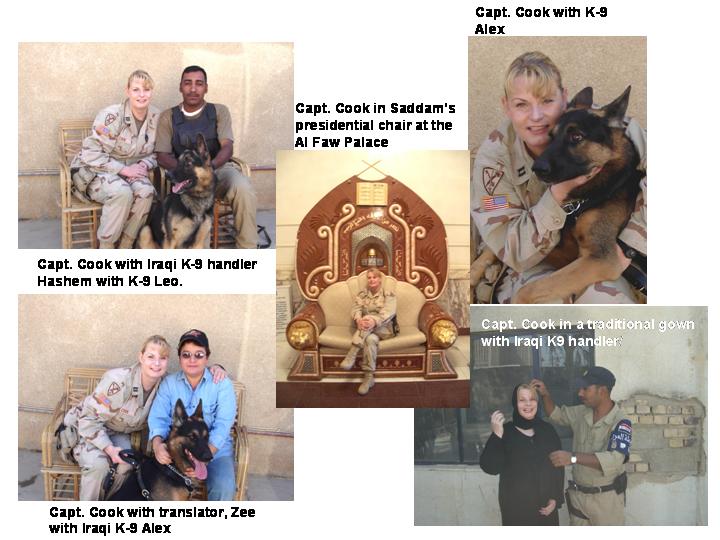
But Hajea says Iraqis now recognize that dogs’ keen sense of smell makes them invaluable weapons in thwarting terrorists whose calling cards are roadside bombs and explosively rigged vehicles.
“There is no better investment to countering the threats of bombs and explosives,” said Col. Randy Twitchell, chief U.S. military adviser to the Baghdad Police College. “The Iraqi security forces are recognizing how useful a role that dogs can play in securing the country.”
Beefed up units
The recent embrace by Iraqi security officials has been welcomed by the U.S. military, which is paying $12,000 for each dog.
For years, U.S. military commanders have been urging the Iraqi forces to incorporate more dogs into their security program. The Iraqi security forces first formed a K-9 unit in the 1970s, but it was scarcely used.
“We were there, but we only had a few dogs and we did little more than train,” said Hajea, who joined the police in 1986 after being trained as a veterinarian.
The American advice to bulk up the K-9 units was initially met with resistance. Instead of using dogs, Iraq’s Interior Ministry instead invested tens of millions of dollars in the ADE-651, a British-manufactured bomb detection device that is ubiquitous at checkpoints throughout the country.
Earlier this year the British government banned the sale of the device, which looks like a staple gun with a TV antenna attached to it, after a BBC investigation found they did not work.
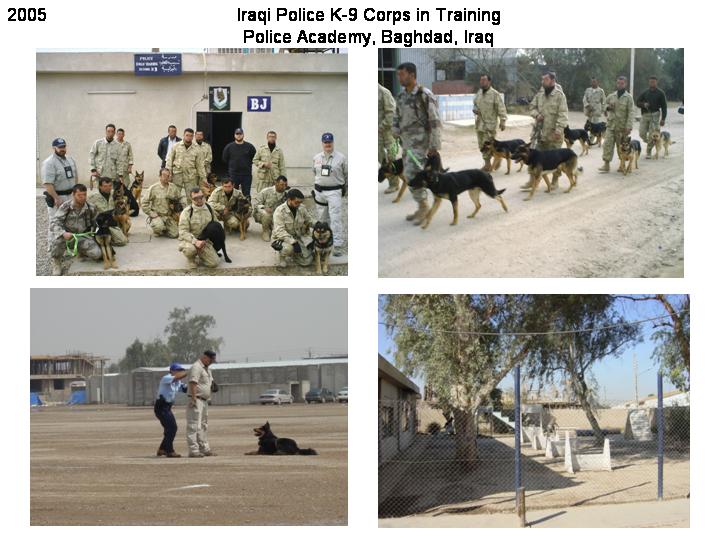
Iraqis say the ADE-651s are useful and have helped police catch assailants. But Maj. Gen. Richard Rowe, the U.S. commander who oversees police training in Iraq, says the gadgets do not work. He has urged Iraqis to invest more money in dogs and other proven bomb-detection devices.
Despite the difference of opinions on the ADE-651, both Twitchell and Hajea say they are pleased that dogs are starting to become embraced by top Interior Ministry officials as U.S. troops begin their drawdown, scheduled for completion by the end of next year.
Plenty of volunteers
The vast majority of bomb-sniffing dogs being used at Iraq’s airports are owned by foreign contractors. Over time, those contractors will be phased out and replaced by Iraqi government-owned dogs and their police handlers, Hajea said.
Twitchell said that there was some concern before starting the program that there wouldn’t be enough police officers interested in training as dog handlers.
“In the end, we had some 60 volunteers for 25 spots,” Twitchell said.
At one of the final exams for the dogs last week, police officers guided their dogs through a row of luggage that had been set out on the hot asphalt of a parking lot at the police college. One bag, a dusty green duffle, was stuffed with explosives.
One of the last to go through the test was a cream-colored Labrador named Buddy and his nervous handler, Yusuf Hasib Qudair.
Buddy slowly sniffed each bag until he came to the suspect sack, which he sat on — the dogs’ way of indicating to handlers that they’ve found the suspect material.
Qudair broke into a grin and bounced a tennis ball for Buddy to chase, the reward for a job well done. Qudair said he’s never owned a dog and he wouldn’t consider keeping one in his home. But over the course of his training, he has bonded with Buddy.
“Buddy and I have been with each other every day for the last six weeks and we’ve gotten to know each other well,” said Qudair, 30. “Most important, I think together we can do our part to help the security situation.”
